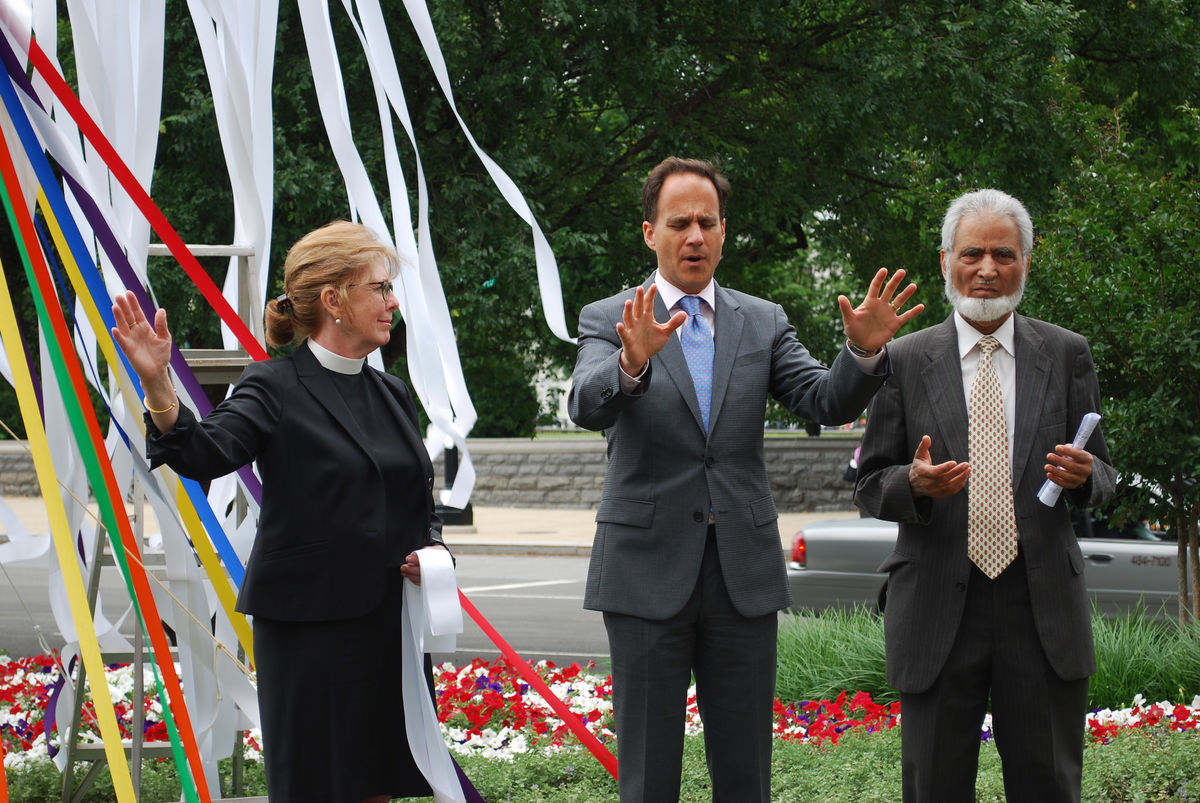LGBTQ Rights
We will seek to live together in Christian community, accepting one another as Christ has accepted us.

The United Methodist Church is in a time of deep discernment over how to recognize and welcome LGBTQ (lesbian, gay, bisexual, transgender, and queer/questioning) people as part of the life and ministry of the Church. The 2016 General Conference — the top legislative body of the denomination — adopted a motion that deferred consideration of all legislation related to human sexuality and led to the creation of the Commission on the Way Forward.
We affirm all persons as equally valuable in the sight of God. We therefore work toward societies in which each person’s value is recognized, maintained, and strengthened.
United Methodist Social Principles, ¶162In the midst of these debates and disagreements over internal polity, the Church remains steadfast in support for laws in civil society that uphold the rights of LGBTQ people.
“Certain basic human rights and civil liberties are due all persons. We are committed to supporting those rights and liberties for all persons, regardless of sexual orientation.” (Social Principles, ¶162.J) We support “the rights of all persons to equal access to housing, education, communication, employment, medical care, legal redress of grievances, and physical protection.” (Social Principles, ¶162)
Tragically, many communities have failed to guarantee these basic human rights and instead – all too often under the pretense of religious belief – institutionalize and codify discrimination against LGBTQ people.
As a church we “deplore acts of hate and violence against groups or persons based on … sexual orientation [or] gender identity.” (Social Principles, ¶162) According to the United Nations, 76 countries criminalize consensual same sex relationships and in seven countries the penalty may be death. Bullying and threats of violence against people who are, or are perceived to be, LGBTQ contribute to cultures of fear and shame. As a result, LGBTQ people have a higher risk of suicide and a higher risk of sexual and gender-based violence.
The HIV and AIDS epidemic further demonstrates the deadly consequences of a culture of fear and stigma as individuals are afraid to seek testing and treatment keeping them from accessing life-saving anti-retroviral drugs and increasing the risk of transmission to others.
Discrimination and dehumanization by individuals, institutions and societies, rob LGBTQ people of their God-given dignity. As followers of Jesus Christ — whose ministry embraced those who society rejected and marginalized — we commit ourselves to being a church in ministry for and with all people.
Three Things You Can Do:
- Listen openly to the stories and experiences of people whose lived experience is different than your own.
- Create safe spaces for young people to talk about their Christian faith where they are supported as they navigate challenges they experience growing into adulthood (e.g. dating, bullying, peer pressure, drug use, etc.).
- Advocate for laws protecting the dignity and rights of people of all sexual orientations.